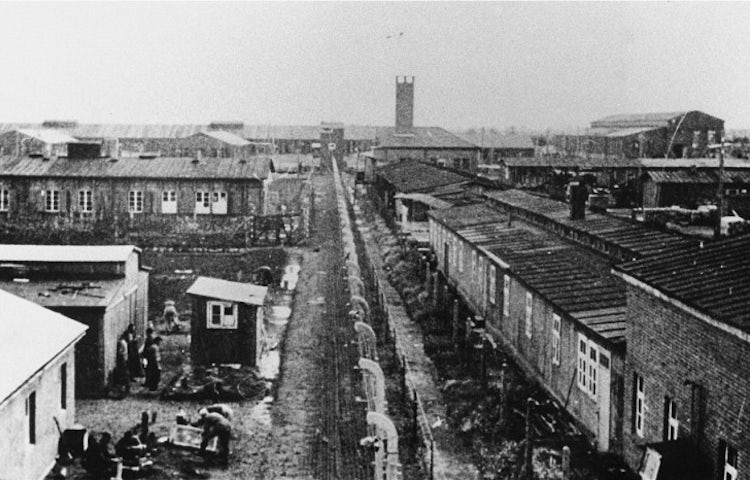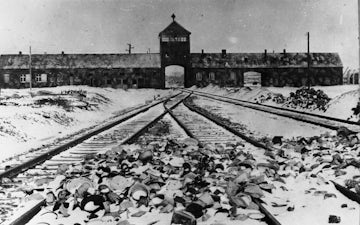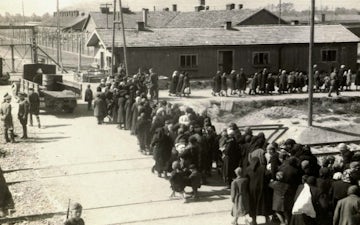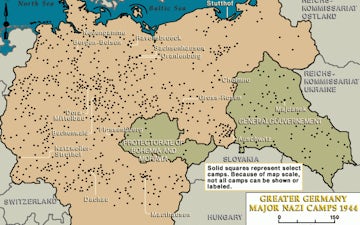
A concentration camp was an institution developed in Nazi Germany to imprison political enemies and opponents. Often situated in suburbs of major cities, the camps were a very visible indicator of the Nazi regime’s willingness to use violence and terror. Inmates in concentration camps were held in inhumane conditions and subjected to torture, starvation, and, in certain camps, medical experimentation.
The first of these camps was opened at Dachau, near Munich in Bavaria, in March 1933. In the early years of the regime, inmates included Communists, Socialists, Social Democrats, Jehovah’s Witnesses, homosexuals, criminals, and others considered to be deviants.
Following the November 1938 Kristallnacht pogrom, an estimated 30,000 German and Austrian Jews were rounded up and imprisoned in concentration camps. After the outbreak of World War II, the German authorities expanded their concentration camp network. These included: forced labor camps (like *Neuengamme* in Germany) intended to exploit prisoner labour to profit the SS; transit camps (like *Westerbork* in Holland) to facilitate the easier deportation of Jews; and extermination camps such as *Treblinka*, which had almost no infrastructure other than gas chambers, SS accommodation, and facilities for sorting the belongings of those murdered.




